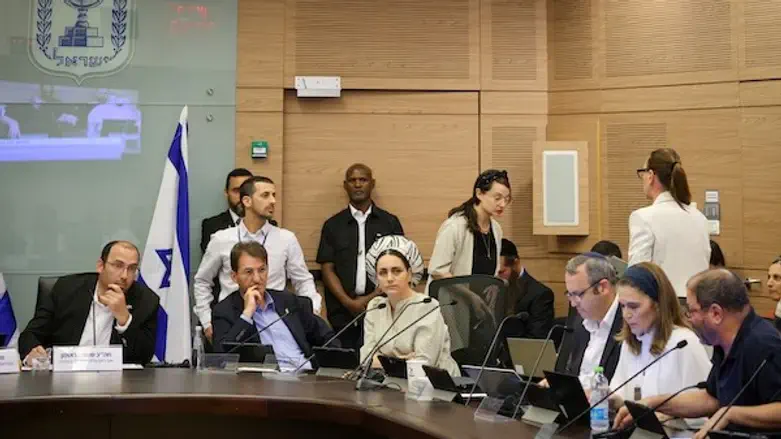
A petition was filed in the US Federal Court in Texas on Wednesday by the Regavim Movement, an Israeli civil society think tank dedicated to the preservation of Israel’s national resources and Israeli sovereignty. The lawsuit, filed on behalf of Regavim, a number of dual Israeli-American citizens, and a Texas-based pro-Israel nonprofit, argues that the broad and unspecific language of the Executive Order allowing for sanctions against Israelis threatens freedom of speech and dissent, and has been applied in a biased and highly politicized manner.
The petition sparked intense interest in the US and around the world, as well as in the Knesset. Later in the day, MKs from coalition and opposition parties, representatives of the Knesset Research Division, experts in American, European, and international law, academics, and representatives of civil society organizations participated in an in-depth and wide-ranging discussion of the sanctions in a Knesset Constitution, Law and Justice Committee hearing initiated by the Regavim Movement and the Knesset Land of Israel Caucus.
The hearing dug down into the details of the sanctions, examining the sources upon which sanctions have been based, the implications for Israel’s law enforcement, judicial and legislative systems, and national sovereignty, the impact on individuals and the rights of Israeli citizens in their own country, with particular scrutiny of the government’s response to the imposition of sanctions. Representatives of the Ministries of Finance, Justice, Foreign Affairs, and Defense, as well as the Knesset’s Research Division, the National Security Council, and the Israeli Judicial Authority, presented data and discussed strategies for contending with the challenge of sanctions.
MK Simcha Rothman, Chairman of the Committee, noted at the outset that the Ambassadors of the United States, France, Canada, the European Union, Japan, and Australia declined to participate in the hearing or to engage in dialogue on the sanctions imposed by their countries. “Israel is not a vassal state. These anti-democratic, unprecedented sanctions exclusively target Israeli citizens – Jews only – as a means of sanctioning the State of Israel as a whole.”
MK Yulia Malinovsky (Yisrael Beitenu): “By complying with foreign sanctions, Israeli banks are trampling the basic principles of a democratic society and committing a severe infringement of human rights. From this hearing we should be issuing a call to the government, the Prime Minister, the National Security Council and every other government agency to deal with this problem at the national level while at the same time creating immediate, practical solutions for Israeli citizens who have been impacted.”
Meir Deutsch, Director General of Regavim: “The thundering silence of the Israeli government is enabling this new form of antisemitism. This important hearing was long overdue. We call upon the government to take responsibility, to fight back against the infringement of the rights of Israeli citizens. The sanctions are a slippery slope; any and every law-abiding Israeli can be targeted, without prior notice or opportunity to present a defense. Anyone who dares to disagree with the Biden Administration’s 'two-state solution' may find themselves, as Regavim now finds itself, in the sanctions crosshairs.”
